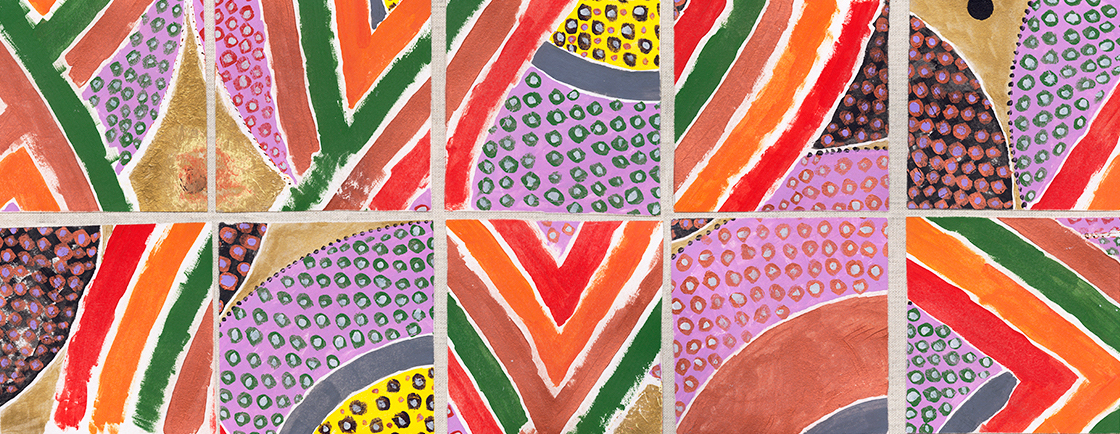
'5x6 Matrix' (inset), Craig K. Comstock.
Craig K. Comstock (1939-2019)
THE WILD CULTURE OBIT PAGE: Editorial
He came to this publication by way of one of our editors who told him he was the guy for us, and she was right.
The first piece he sent — 'The Normalization of Mega-Risk,' which described an political error that led to a near miss with nuclear arms in 1983 — was a story most people hadn't heard about. What followed was a wide range of highly readable essays on politics, culture and history — from Anne Frank, migration and climate change; to Aldous Huxley on 'vision-inducing art'; to China and our ecological future: these were just the tip of Craig K. Comstock's journalistic intellect. In every essay, his ethical eye was trained on the bottom line of an intelligent society, one he strived for. He showed us how to shine up integrity in all things, and he did it through the simple beauty of his thought that contained a lightness of being and an ability to dole out plain sense without preaching.
Craig described himself as a social commentator and artist. Early on, he worked as a book creation coach and was the director of the Ark Foundation, “trying to keep us out of the Cold War.” Later in life he took up painting; he said he wanted to exercise the right side of his brain, and because he had never painted before. In retirement, on an Ashland, Oregon community-access TV station, he produced and hosted over a hundred half-hour interview shows focused on “people doing something admirable.”
Above all, he seemed to have a strongly positive effect on those who engaged with him. His natural and benevolent concentration on others made meetings with him memorable.
My own dominant feeling is one of gratitude for a rich and wonderful life . . .
Craig's last contribution for us was a beautiful poem, 'Raven in the Stern'. When we were working on it he wrote this message: “In case you have any questions for me, I’m asking you to prepare the Wild Culture version as soon as possible. Because of my upcoming schedule I will be busy after this week.”
That was March 3. On March 20 he was dead. At age 80, having decided that living with an incurable and progressive neurological disease was too painful and too hard, on as few levels, he went out on his own terms. Having informed almost no one in advance, he tended to his own departure from this world.
“I prefer to go out feeling gratitude than to linger on, able to do less and less due to my deteriorating health," he wrote in a letter sent to family and friends. "My own dominant feeling is one of gratitude for a rich and wonderful life, plus acceptance of a physical trajectory that is not favorable and is more advanced than it may have appeared to others."
Though we didn't know him well, getting pure Craig came easy. His warm appreciation of what we do here meant the world to us — a world in which, in the words of geologian Thomas Berry, "The great work of our times is to reinvent the human at the species level." Craig's work was of that world.
Here are some reflections on being in his presence. And what a presence it was.
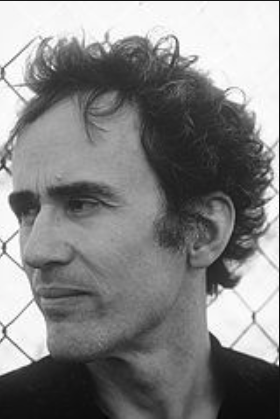
Craig as a young man.
Four Vignettes
Shoshanah Dubiner, wife
1
When I first met Craig, I admired his passionate concern for the world and his desire to save it from catastrophe. He had been active working to do that for many years. We shared the same concerns and political viewpoints, yet he was much more informed than I was. He read and wrote daily about climate change, fracking, nuclear disasters and potential disasters, political corruption and social inequality, just to name a few topics. He owned a huge library on all these topics, And, he was blessed with a temperament that was able to hold the bad news without personally falling apart. He shared his thoughts with me every day at breakfast, lunch and dinner. While I wanted to be a good listener, at some point I began getting more and more agitated with all the negativity. I came from a family of worriers and couldn’t hold it as he could. Finally I had to say, “Craig dear, it’s too much. I can’t hear this all day long. If you want to talk about world disasters, call one of your buddies.” Being the caring, gracious man that he was, he kept the household rants to a minimum and used his considerable knowledge as inspiration for his writings.
2
Craig and I met online. When he found out that I had been painting for many years, he asked me to send him a digital file of one of my paintings. As a sort of test, I sent one of an imaginary rainforest with thorny leaves and tiny skeletons. If he found it 'too weird', I had decided that we would not be a good match. Instead, he wrote back that my painting made his scalp tingle in a good way. He talked about his own painting as if it was a hobby, so when I asked to see one of his paintings, I feared that it might be a sort of bland ‘horse on the hill’ watercolor. Instead, I received a powerful image — abstract, dynamic, reminiscent of Paul Klee. I was so happy! Now I knew we had something to share. Here was a man with a vision and talent. On his first visit to my house in San Francisco, we actually painted several pictures together, taking turns filling the paper with glorious shapes and colors. We could paint anything we wanted; the only rule was that we could not erase each other’s work. We could add to it, elaborate upon it, but not paint over. Painting together was a beautiful way to start our relationship; it brought us close together doing something we both loved and taught us how to honor each other’s differences early on. After I moved to Ashland to live with him, we were fortunate to have one of the local galleries hold a joint exhibition of our paintings.
3
During our marriage, Craig and I developed a gratitude practice. Before we went to bed each night, we would tell each other at least three things that we were grateful for that day. Sometimes it was that the weather was beautiful, that we had a house to live in, good food to eat, clean water. Sometimes it was gratitude for someone’s kindness toward us, or that we had been able to help someone else. Sometimes it was for something we had been able to accomplish that day. As Craig's health declined, he would express gratitude that he was not in pain, that he could still write and could read large print on the computer; that he could still make his own blueberry smoothie for breakfast. We were grateful that we had each other. I cherish the memory of saying gratitude together the night before Craig died.
4
During the 14 years I was married to Craig, my life went through some difficult periods. I was lucky that Craig was always there to support me, hold me, encourage me, shower me with love and compassion. I felt so loved and grateful.
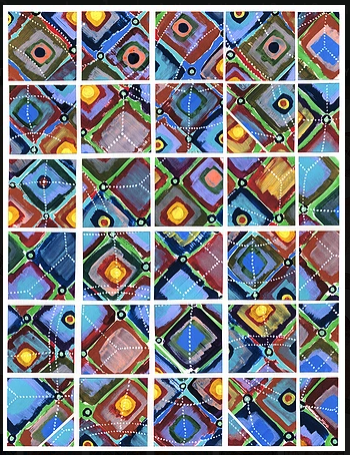
'Dreamtime'. Craig K. Comstock.
Tea and Conversation
Susanne Severeid, friend
I only knew Craig for a relatively short period of time, just a few years. I wish our friendship had lasted longer. He contacted me because he had written Gift of Darkness and he knew of my late husband’s time in the Dutch Resistance during WWII. We met for tea and our friendship took off from there.
Craig’s mind was razor-sharp, and to be on the receiving end of his wit and humor was a joy. Our conversations had such a sense of liveliness, as if jumping effortlessly from stone to stone in a shallow pond.
There was always a warmth and wisdom imparted by Craig, a kind of implicit encouragement. I often felt buoyed after I met with him, in a way I find difficult to put into words. It was more a feeling I was left with than anything tangible. Even though we might be talking about the most depressing of political events, or the effects of climate change, our conversations always somehow left me more enlightened — and feeling more hopeful. Perhaps I felt more able to face the challenges that lay ahead, however dark.
He never openly complained of his physical pain, but he was also honest about the degenerative nature of his condition and, especially the last few times we met, he seemed saddened by what he knew was a downward slide physically.
Craig was a brilliant and generous man, and I feel that he graced me with his friendship. I am a wiser person for our conversations. I will miss our talks very much, and yet I will always have them. I know that. I wish him only peace now that he is at rest, and I know that his caring spirit continues to embrace those whom he loved so deeply.
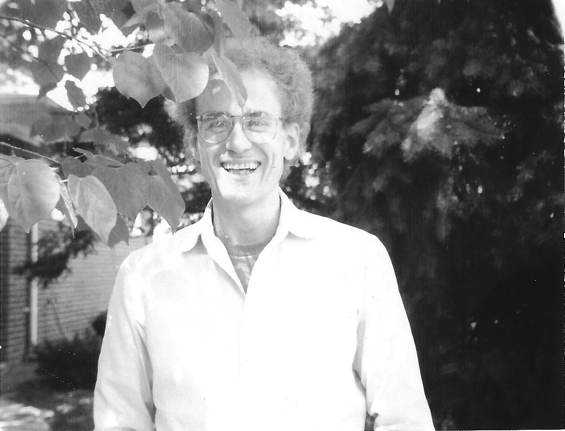
Ann Arbor, 1988.
Two Stories
Elizabeth Hallett, friend
A MEMORY OF TEA
Some of us gathered after Craig left his body, to honor him and share stories. It turned out that several of us had similar periginations to share one-on-one tea with Craig — for a while at the Dobrá Tea House in downtown Ashland. As parking and walking became more challenging, the Roasters Coffee House uptown was more easily accessible. Then, finally, Craig stayed home most of the time, where he could get around most easily, so tea would be there at the kitchen table, or out on the porch where there was a lovely enclosed garden-universe, from which to take off into our conversations about all manner of things. The conversations were as fluid as tea itself, covering all manner of topics. Craig did not speak much of his ailment; a degenerative muscular disease. Instead he focused on the new, the possible, the guest in front of him, and what gifts there were to unpack between us.
TO KEEP FROM CRYING
We were having tea at Dobra one afternoon, not long after the horrible Pulse nightclub shooting [in Orlando, Florida, 2016]. I explained that now there was a movement to allow people to carry guns in every nightclub in the country. I could see Craig’s wilting expression, as he rolled his eyes at the thought of it. Then, a gleeful, almost wicked smile as he perceived the ridiculous.
He began to cradle a large invisible weapon in his arms and said: “Imagine slow-dancing with an AK47 between you and your partner!"
We laughed hysterically. At the absurdity of what has happened to our culture, to our gathering places, to our very selves — and that we needed to laugh hard to keep from crying.
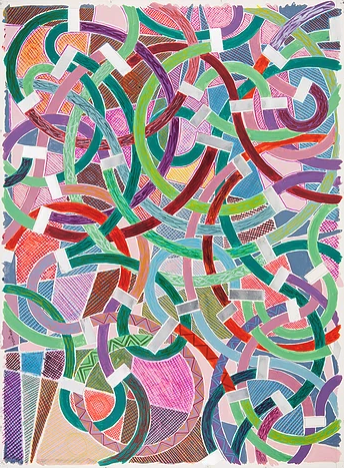
'Aluminum Bars.' Craig K. Comstock.
Craig on Craig
At a David Whyte poetry workshop. First immersed in David’s recitations of golden words — his own and those of the famous masters. Then an invitation to write on 'Whyte Inveigled' — Craig’s description — the attendees to try writing some lines of their own and reading them to the group.
On the way to lunch we passed a stand of flowering lilies, thick with pollen. Back in the workshop a young woman said she wanted to write about freckles. She had many. Her mother had told her, “It’s my fault. I left you too long in the sun.” Shuddering at the parental remark, I dashed off the following:
When you find the one who knows how,
how to dapple your body
so lightly it feels like a foretaste,
a foretaste of other kisses,
to dapple from forehead to feet
your entire bodily surface
with dot after dot of dense saffron,
with pollen from August lilies,
then your whole skin will know
why it was shown to the sun
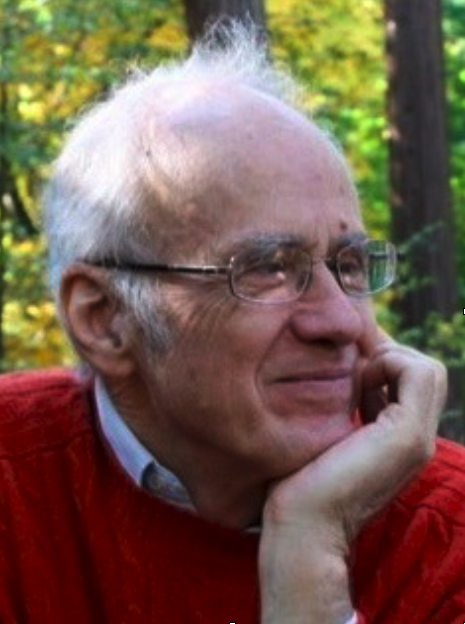
Craig in recent years.
Gratitude for a trilogy
In his goodbye letter, Craig wrote, "On my birthday a few years ago I began writing down some gratitudes and surprised myself by continuing until I had reached ten pages. In the years since, I would add: I am delighted to have finished writing the “gratitude trilogy,” consisting of Gift of Darkness: Growing Up in Occupied Amsterdam (biography of a troubled adolescence; 2015), Enlarging Our Comfort Zones: A Life of Unexpected Destinations (memoir of a decade; 2016), and Better Ways to Live: Honoring Social Inventors, Exploring New Challenges (social commentary; 2017).
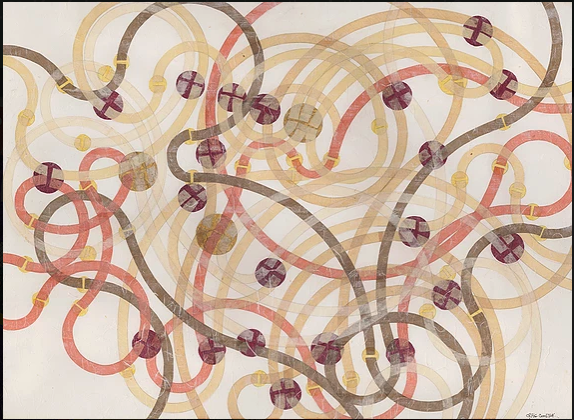
'Washi Arcs.' Collage of rice paper. Craig K. Comstock
ARTICLES by Craig published in these pages.
And finally . . .
"It is a tradition in Zen to leave behind a poem." wrote Craig. "These lines came to me, all in a flash, on an Ashland front porch as I was arriving for our pre-breakfast sanghat. The poem turns out to be a triple haiku."
THIS SKY
powder on dawn ridge
the bell a way that silence
has of ringing us
us rung by silence?
soon you will be telling me
sun rises snow melts
there’s really nothing
to be distracted from when
birds play in this sky
A Conversation with Craig Comstock.

Comments
I was blessed to live my
I was blessed to live my entire life with Craig as my big brother and dear beloved friend. How very lucky I have been to have his love and support throughout my life. I have always cherished our close friendship and frequent conversations and discussions. I cannot imagine life without him. He was a treasure. Thank you for this beautiful celebration of his life and spirit.
Thank you for honoring Craig
Thank you for honoring Craig in such a beautiful way. He was an amazing human being, and I was blessed to be his wife.
A superb testamento to a fine
A superb testamento to a fine man. Many thanks for this. The dignity that he brought to his passing echoes the dignity he brought to living. and loving.
Add new comment